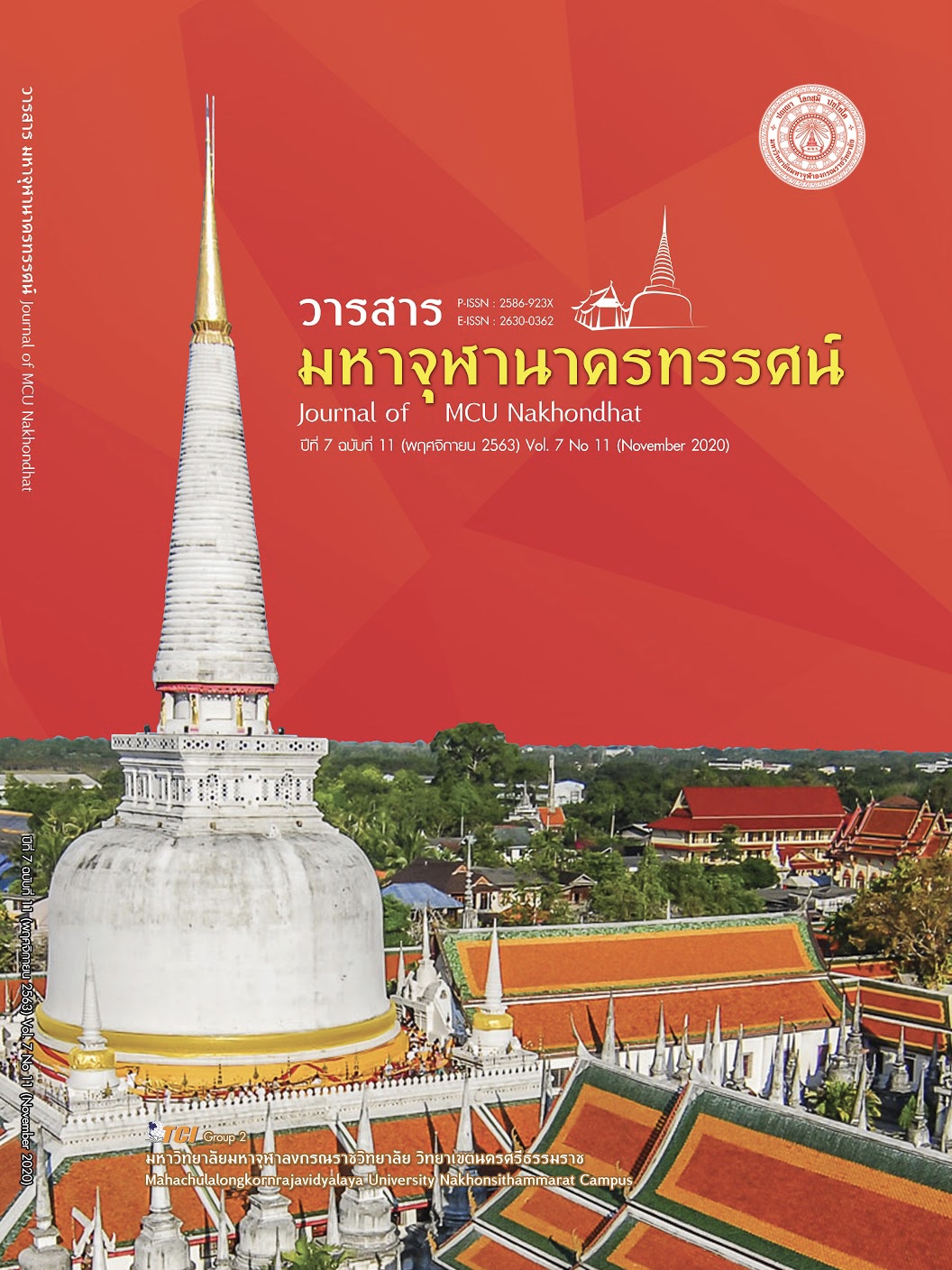LEGITIMACY ESTABLISHMENT FOR CONSTITUTIONAL COURT JUDICIARY RECRUITMENT PROCESS
Main Article Content
Abstract
This article is aimed 1) to illustrate the legitimacy problems in constitutional court judiciary recruitment process, and 2) to propose a judiciary recruitment model for its legitimacy establishment. This is a qualitative research gathering data via documentary researching and in - depth interviewing. The samples include 14 key informants which are former prime - minister, the head of the parliament, members of the house of representatives, medias, Political Science and Law academics. Applying Descriptive Analysis method, the data have been analyzed. The research result indicates that; 1) Legitimacy problems of Thai Constitutional court included some judiciary has not connected to people’s sovereignty, lacking of proper involvement from political party in judiciary recruitment process, and the senate – the approval agent - has not rightly connected to people’s sovereignty.2)Legitimacy Establishment for Thai Constitutional Court Judiciary Recruitment Process ought to be aligned with core concept of the Parliamentary Monarchy system which the parliament plays significant role in political activities. Therefore, the judiciary recruitment process must highly pay respect to such principle by allowing parliament representatives - as political stakeholder - adequately share balance in recruitment committees, all judiciary candidates must fairly go through this committees, and once the recruitment is done, the selected candidates must be approved by senates, as a branch of the parliament.
Article Details
References
คำสั่งหัวหน้าคณะรักษาความสงบแห่งชาติ ที่ 24/2560. (2560). ราชกิจจานุเบกษา. เล่ม 134 ตอนพิเศษ 109 ง. (20 เมษายน 2560).
ทิพภานิดา ปาลกะวงศ์. (2556). ความชอบธรรมของศาลรัฐธรรมนูญในระบบการเมืองไทย. ใน ดุษฎีนิพนธ์ปรัชญาดุษฎีบัณฑิต สาขาการเมือง. มหาวิทยาลัยรามคําแหง.
นรนิติ เศรษฐบุตร. (2550). รัฐธรรมนูญกับการเมืองไทย. กรุงเทพมหานคร: มหาวิทยาลัยธรรมศาสตร์.
. (18 มิถุนายน 2561). ศาลรัฐธรรมนูญ. (ชนะศึก วิเศษชัย, ผู้สัมภาษณ์)
บวรศักดิ์ อุวรรณโณ. (2546). ศาลรัฐธรรมนูญ ตามรัฐธรรมนูญแห่งราชอาณาจักรไทย พ.ศ. 2540. กรุงเทพมหานคร: สถาบันพระปกเกล้า.
วิรัช วิรัชนิภาวรรณ และคณะ. (2547). การวิเคราะห์คำวินิจฉัยของศาลและตุลาการศาลรัฐธรรมนูญ เล่มที่ 3 ส่วนที่ 3. กรุงเทพมหานคร: นิติธรรม.
วิสาข์ อิ่มใจ. (2551). ปัญหาว่าด้วยโครงสร้างและอำนาจหน้าที่ของศาลรัฐธรรมนูญ: ศึกษาเปรียบเทียบศาลรัฐธรรมนูญตามบัญญัติของรัฐธรรมนูญฯ พุทธศักราช 2540 และรัฐธรรมนูญฯ 2550. ใน วิทยานิพนธ์นิติศาสตรมหาบัณฑิต สาขานิติศาสตร์. จุฬาลงกรณ์มหาวิทยาลัย.
สำนักงานศาลรัฐธรรมนูญ. (2550). ความรู้เกี่ยวกับศาลรัฐธรรมนูญ. กรุงเทพมหานคร: พี. เพลส.
อภิสิทธิ์ เวชชาชีวะ. (29 สิงหาคม 2561). ศาลรัฐธรรมนูญ. (ชนะศึก วิเศษชัย, ผู้สัมภาษณ์)
Kuhonta et al. (2014). Democratic Regression in Thailand: The Ambivalent Role of Civil Society and Political Institutions. Contemporary Southeast Asia: A Journal of International and Strategic Affairs, 36(3), 333-355.


